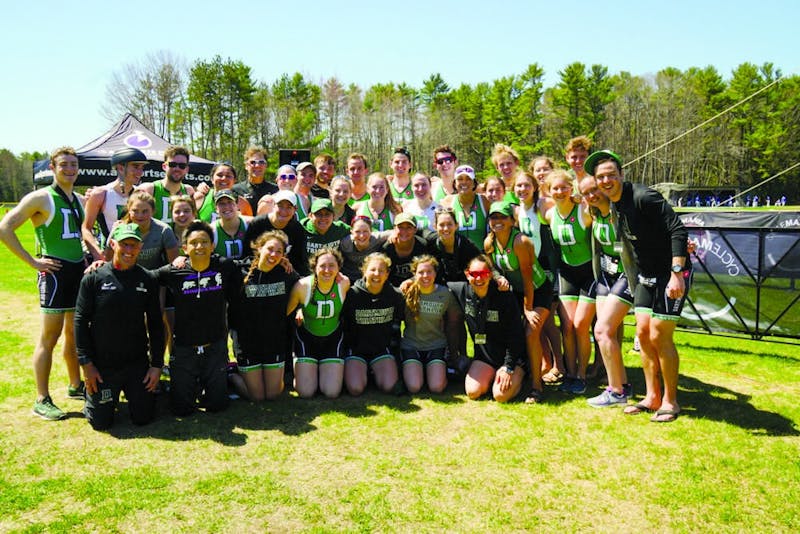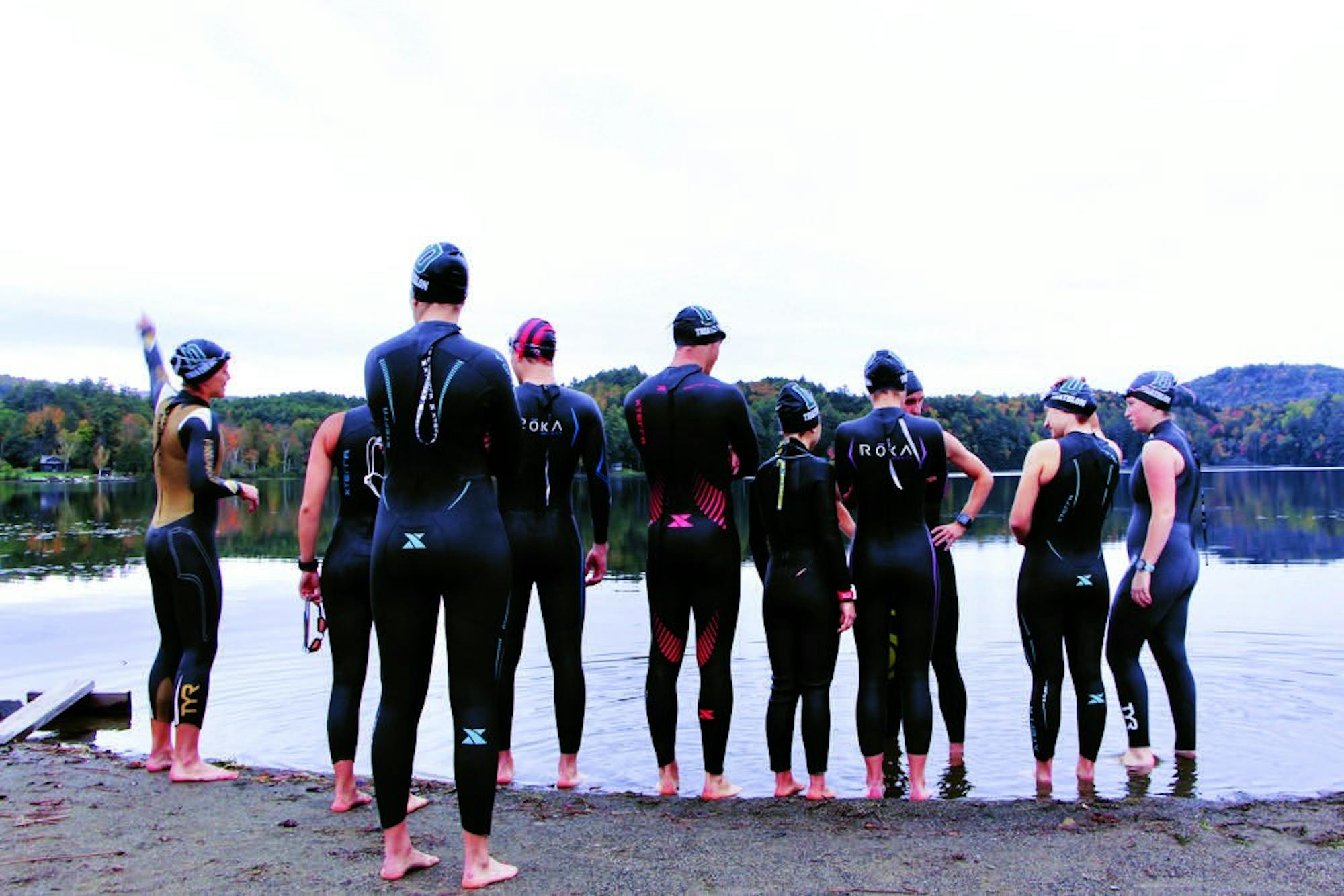When Dartmouth’s Triathlon Club was founded five years ago by Kendall Farnham ’14, Sara Heard ’15 and Nicolina Mascia ’15., the group of students wanted to fill the void for athletes who wish to expand to multiple sports.
The trio wanted something new because previous iterations of the triathlon team were no longer around, according to Matthew Goff ’18, who joined the club in the winter of his freshman year. A high school hockey player, Goff was not satisfied with club hockey but wanted to participate in a team while at Dartmouth.
“I found out in the winter that we had a triathlon team and decided to go to a practice [and] give it a shot, and I absolutely loved the environment, the people and the sport,” Goff said. “I did my first race in the spring of my freshman year and kinda got hooked.”
His freshman fall was the first time the team trained and eventually competed in full force. Now, the team has over 50 active members, Goff said. Almost half of these members are ’21s.
The Triathlon team swims, bikes and runs in a variety of different events. Beginner members of the team focus on the sprints, the shortest event. This consists of a 750m swim, a 12 mile bike and a 5K run. Some team members race in the Olympic event, which is a 1.5K swim, 25 mile bike and a 10K run. Others even train for longer events like Half Ironman or Ironman. The Ironman includes a 2.4 mile swim, a 112 mile bike ride and running a marathon. Most triathlon events are in the spring and summer. The team races every May, which is the first race for many of the new members.
“It was so fun,” Hannah Lang ’21 said of her first race. “We trained really hard for it, so it was really nice to finally get to do it.”

Triathlon season continues through the summer and into the fall. The team often races within the first two weeks of fall term, Goff said. Sophomore summer is a great time to be on the team because there are so many races at that time in the New Hampshire area. The team mostly races in New England, but sometimes they go as far as New York or further, according to Goff.
Training is rigorous, especially for longer events. Many athletes train six days a week, and practices are held seven days a week, Goff said. Team members may train up to twice a day. The team has two volunteer coaches, but they schedule all of their own training events and their races, according to Lang.
Although the practices are rigorous, the athletes have a lot of fun at practice.
“With everyone at Dartmouth having very busy schedules, the time we spend with the team is precious,” co-captain Carly Tymm ’20 said. “I look forward to practices every day both for the workout and the social component. While our practices are often challenging, they are so much fun. I am often nearly in tears laughing in the middle of practice due to the fun environment we have created on the team, and I cannot begin to describe how much of a positive impact the team has had on my experience at Dartmouth.”
This year was the first year that the team was able to go on a training trip. They rented a house in Orlando, Florida, trained at the National Training Center in Clermont and competed in the Intimidator and Great Clermont triathlons at the end of their stay. This was made possible due to their recent purchase of a large trailer, which was able to transport 25 bikes. Because triathlon is an expensive sport, the team has been working on cutting costs for bikes, wetsuits and races to make the sport more accessible, according to Goff. They receive much of their funding from donors, he added.
The leadership transitions have been smooth, even in the club’s infancy, according to Goff. The team has two junior captains — Sonia Rowley ’19, Tucker Evans ’19 and one sophomore captain, Tymm. They also have a 19-member executive board made up of different classes. Spring is a transitional time in the club when the seniors take a step back from direct management, Goff said. Lang, who is on the executive board, said that the new execs are mentored by a senior when they take the position in the spring. There is a lot to manage, and each executive takes up a different role.
“What’s most important to me is the people on the team,” Lang said.
As a freshman, Lang said she appreciated the inclusivity of the team and considers it an integral part of her time at Dartmouth so far.
“What it added for me was a support network of people who always said ‘Hi’ to me whenever they saw me and were interested in hearing about how my day was going,” she said.
Rowley echoed a similar sentiment on the team’s impact on her Dartmouth experience.
“I can’t overstate how much the Dartmouth Tri family has shaped my college experience,” Rowley said. “Since my freshman fall, I have developed a passion for triathlon as a sport, but even more than that, I have fallen in love with the triathlon community.”
Tymm added that the triathlon team, with its mutual support and encouragement, serves as a model of consideration and respect that “adds immensive positivity to the Dartmouth community.”
“I think that triathlon members are just all over in so many different parts of campus and I think they’re leaders in a lot of different ways,” he said.




